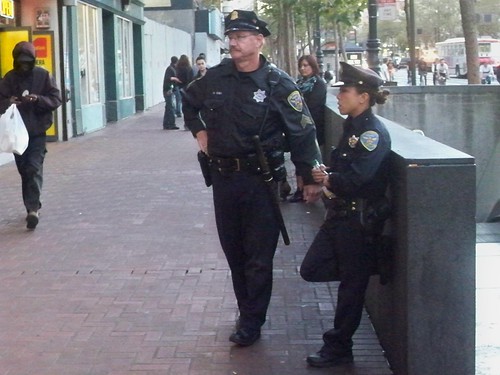Yes, Federal Agents Can Identify Anonymous Tor Users, Because Most People Don't Know How To Be Anonymous
from the well,-duh dept
For many, many years now, we keep hearing law enforcement whine about the "threats" of anonymity and how people would be able to get away with all sorts of criminal activity if they weren't given the ability to track, monitor and tap pretty much every communications technology that has come along. A decade ago the fear was that free and open WiFi was going to be a major boon to criminals who could use it "with no trace." As we pointed out, however, nothing about using an anonymous connection like that means you won't get caught, because criminals have to do a lot of things, many of which will expose them in other ways, without having to tap and track every technological interaction. What's known as good old-fashioned detective work can often track down criminals who used tools to be anonymous -- and for years, we've pointed out many, many, many examples of this.More recently, law enforcement's concern has been about Tor (which is slightly ironic, given that Tor was created and funded by the US government). The Snowden revelations have shown that, try as they might, the NSA has not had much luck in compromising Tor, and Snowden himself has noted that properly used encryption mostly works.
A recent Wall Street Journal article notes that law enforcement is slowly realizing that perhaps Tor isn't a parade of horribles that must be encumbered with backdoors for wiretapping... after realizing that most criminals more or less reveal themselves by doing something stupid along the way anyway.
But officials are becoming more confident that Tor's shield of anonymity isn't impenetrable.This is a good thing. We should want law enforcement to be able to track down criminals -- and it's good to see that they're figuring out ways to do so. But it's important that they should need to do so via basic detective work, rather than by compromising important technology, creating security flaws and opening up all sorts of dangerous unintended consequences.
"There's not a magic way to trace people [through Tor], so we typically capitalize on human error, looking for whatever clues people leave in their wake," said James Kilpatrick, one of the HSI agents who is part of Operation Round Table, a continuing investigation into a Tor-based child-pornography site that has so far resulted in 25 arrests and the identification of more than 250 victims, all children.
As with all kinds of new technologies, anonymizing technologies seem to create something of a moral panic among law enforcement types, who then insist those technologies need to be "broken" and backdoored or else criminals could somehow get away with everything. But that's silly. Sooner or later most criminals do other things that reveal who they are, opening them up to investigation and potential indictment, arrest, trial etc.
One hopes that as this realization becomes more widespread, law enforcement and intelligence agencies will finally pull back from constantly trying to expand wiretapping laws that will break important innovations and technologies, but perhaps that's being too optimistic.
Filed Under: anonymity, criminals, detective work, tor



